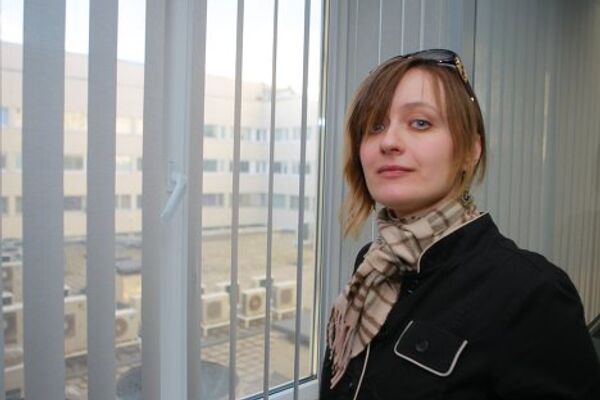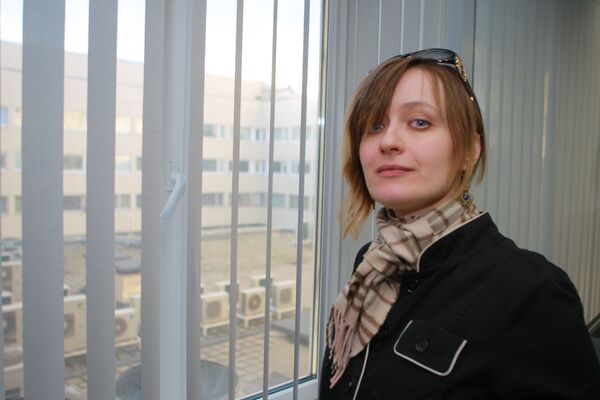Here is a bit of uncomfortable information for Western expats who are new to Moscow: If you or your loved ones, God forbid, end up in intensive care, few hospitals will allow you to have visitors. The rule even applies to very young children.

The issue of intensive care unit (ICU) visitation is perpetually present in the Russian media. Last week, it blew up when Lidiya Moniyava, the manager of the children’s program at the Vera Hospice Fund, wrote about how two of the children whose mothers she had counseled recently died in the ICU alone. The children had late-stage cancer. The mothers were told “you are not allowed here.” They weren’t even allowed in to say goodbye.
Moniyava’s post went viral on Facebook and sparked fierce debate.
There are several factors in the problem of ICU visitation, and the biggest one has to do with infrastructure and funding. Many ICUs in the country are cramped and understaffed. There is very little privacy and very little room for maneuvering, which makes visitation particularly problematic.
Confusing legislation also presents a problem. According to a recent article by philanthropist Maya Sonina, the Rospotrebnadzor consumer watchdog requires ICUs to be sterile environments – even as the law itself ostensibly allows visitation for parents of underage children. There are two laws here that are essentially in conflict with one another. If a hospital administration isn’t breaking the first one, it’s ostensibly breaking the second.
Having said that, it should also be noted that the law on visitation is also maddeningly vague on the definition of the rights of hospitalized children, and is often interpreted to mean that the ICU is legally equated to an operating room, where visitors are not allowed. This legislation means that hospital administrators can tell the desperate parents of children walled off in the ICU that hiring a lawyer won’t help.
Providing better facilities and rewriting the law are obviously two major priorities. Yet there is also the tricky issue of Soviet-era medicine to consider.
Once upon a time, Soviet doctors were ahead of the curve. When imperial Russia fell, the establishment of Soviet medicine was like a ray of light shining into darkness. But years of professional isolation and extreme conservatism now mean that modern Russian medicine is still playing catch-up, particularly where patients’ rights are concerned.
Soviet medicine presupposed that the patient’s body did not actually belong to the patient, you see. Doctors, who saw a lot of blood, gore and tears, were trained to be as dispassionate as mechanics. Treating your patients as human beings was thought to severely impact professionalism. A patient’s family was an unwelcome reminder of the patient’s humanity. Relatives were also deemed “too emotional” to involve in the care process.
All of that worked relatively well when Soviet medicine was dealing with hordes of uneducated peasants. Nowadays, this formula is increasingly seen as outdated and even barbaric, especially in light of the WHO’s findings that children in hospitals tend to fare much better when they are attended to by their loved ones as well as medical staff.
There is also the fact that many Russians still view the entire concept of death as too brutal and ghoulish to be brought out into the open. To them, there is something bizarrely comforting about ICU patients being virtual prisoners – because they are kept entirely out of sight. Many of the comments on Moniyava’s original Facebook post expressed outrage that something as dramatic as a patient’s dying days should be witnessed by family members.
Others, of course, argued fiercely with the former group. One woman wrote heartbreakingly about not being able to visit her dying grandmother. “She died alone,” she wrote. “Just as she had feared. And now I have to live with that.”
It seems painfully obvious that modernization in Russia cannot be contained to equipment and legislation alone. It must also venture into the heart, altering the very understanding of how we ought to live and die.
A tall order, perhaps, but one has to start somewhere.
Trendwatching in Russia is an extreme sport: if you’re not dodging champagne corks at weddings, you’re busy avoiding getting trampled by spike heels on public transportation. Thankfully, due to an amazing combination of masochism and bravado, I will do it for you while you read all about it from the safety of your living room.
Natalia Antonova is the acting editor-in-chief of The Moscow News. She also works as a playwright – her work has been featured at the Lyubimovka Festival in Moscow and Gogolfest in Kiev, Ukraine. She was born in Ukraine, but spent most of her life in the United States. She graduated from Duke University, where she majored in English and Slavic Literature. Before coming to Moscow, she worked in Dubai, UAE and Amman, Jordan. Her writing has been featured in The Guardian, Foreign Policy, Russia Profile, AlterNet, et al.
Trendwatcher: Sasha Grey: Why Don’t We Do It in the (Russian) Road?
Trendwatcher: Going Postal, Pochta Rossii-Style
Trendwatcher: The An-2 plane: lost and found in the Urals
Trendwatcher: The Belgorod Massacre: ‘I Was Shooting at Hell’
Trendwatcher: Boston and Moscow: a tale of two police forces
Trendwatcher: Russia and United States Wage War of the Lists
Trendwatcher: Movie Legend Yury Arabov Goes for Broke
Trendwatcher: Moscow Real Estate Is Literally Hot
Trendwatcher: Cyprus Bailout: March Madness for Russia’s Rich
Trendwatcher: When Being a Middle-Aged Russian Man Is a Death Sentence



